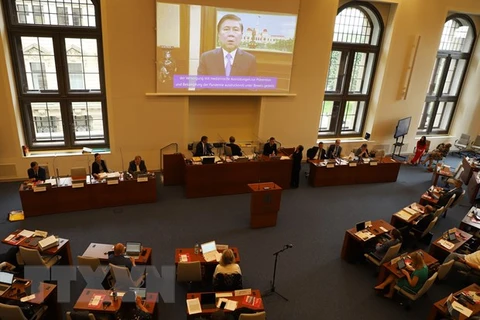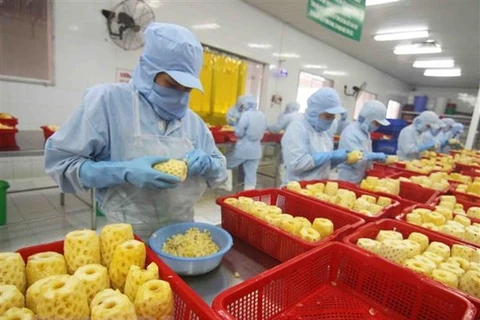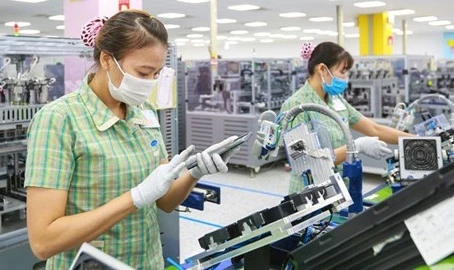 St. Georg Hospital to donate medical supply and protective gears to support Vietnam in pandemic prevention. (Photo: VNA)
St. Georg Hospital to donate medical supply and protective gears to support Vietnam in pandemic prevention. (Photo: VNA) This is the second time the St. Georg Hospital has presented medical equipment to Vietnam.
In a recent working trip to Leipzig city, Vietnamese Ambassador to Germany Nguyen Minh Vu updated the pandemic's developments in Vietnam, especially Ho Chi Minh City where thousands of new infections have been detected a day.
The diplomat called on the city's authorities and local agencies and organisations to support Vietnam's efforts in the fight against the pandemic.
Dr. Iris Minde, Director of the St. Georg Hospital which received assistance from Vietnam last year, noted that only by working together, can the pandemic be pushed back.
The hospital immediately collected the medical supplies, including face masks, protective gears and quick test kits from local medical establishments, hospitals and organisations.
The collection was carried out rapidly thanks to the cooperation from the Economic Promotion Agency and the International Cooperation Department of Leipzig. The medical supplies will be transported to Vietnam in late August.
Leipzig is twinned with HCM City and the two sides have developed cooperative relations in different spheres.
In a related move, the World University Service (WUS) announced on August 4 that the second batch of relief aid including more than 203,000 quick test kits worth 598,000 EUR will be transported to Vietnam by Vietnam Airlines on August 9. They were donated by Hessen state, Messer Group and the WUS./.
VNA
























